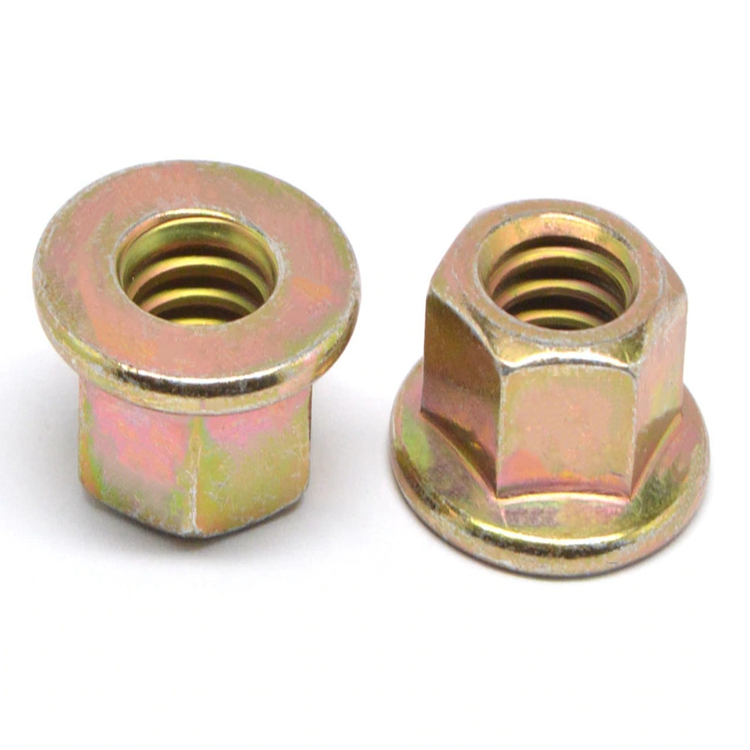bulk flat washers manufacturers
Oct . 09, 2024 03:44 Back to list
bulk flat washers manufacturers
Understanding Bulk Flat Washers and the Manufacturers Behind Them
In the industrial and construction sectors, seemingly small components can play a critical role in ensuring the integrity and longevity of assemblies. Among these essential fasteners are bulk flat washers, which serve several purposes that are often overlooked by those outside the engineering domain. This article aims to delve into the world of bulk flat washers, emphasizing their importance, manufacturing processes, and the key players in this specialized industry.
What are Bulk Flat Washers?
Flat washers are thin, typically round discs with a hole in the center, designed to distribute the load of a threaded fastener, such as a bolt or a screw. Their primary function is to prevent damage to surfaces, minimize friction between surfaces, and provide a smooth bearing surface. In a bulk packaging format, these washers are produced in large quantities, making them readily available for various industrial applications.
Bulk flat washers can be made from different materials, including steel, stainless steel, plastic, and even rubber, depending on the required strength, corrosion resistance, and application. They come in various sizes and thicknesses, catering to the diverse needs of manufacturers across different industries.
The Importance of Quality in Manufacturing
The significance of high-quality bulk flat washers cannot be overstated. Poorly manufactured washers can lead to structural failures in machinery, equipment breakdowns, and compromised safety. Therefore, manufacturers must adhere to strict quality control standards, ensuring their products meet international specifications such as ASTM and ISO.
Quality control processes often include rigorous testing methods such as tensile strength tests, hardness tests, and dimensional inspections. Established manufacturers implement these procedures meticulously, as they understand that the trust of their clientele hinges on the reliability and performance of their products.
Manufacturing Processes
The production of bulk flat washers typically involves several key processes
bulk flat washers manufacturers

1. Material Selection The first step in manufacturing is selecting the appropriate material based on the application requirements, such as tensile strength, corrosion resistance, and environmental factors.
2. Blanking The chosen material is then cut into disks using methods like stamping or laser cutting. This stage must be executed with precision to ensure that all washers are uniform in size and thickness.
3. Finishing After blanking, washers undergo a finishing stage, which may include process steps like deburring, surface treatment, or coating to enhance corrosion resistance. For instance, stainless steel flat washers might undergo passivation to reduce iron contamination.
4. Quality Control As mentioned earlier, before bulk flat washers are packaged, they are subjected to rigorous quality checks to ensure they meet specified standards.
5. Packaging and Distribution Once the manufacturing process is complete, the washers are packaged for distribution. This stage often involves bulk packaging, such as bags or boxes, to streamline logistics and ensure ease of handling.
Leading Manufacturers in the Industry
Several manufacturers around the globe excel in producing high-quality bulk flat washers. Companies such as Fastenal, Grainger, and Albany County Fasteners have established reputations for providing a vast range of fasteners, including bulk flat washers.
Emerging manufacturers are also making strides in the industry by adopting advanced manufacturing technologies, such as CNC machining and automated sorting systems, which enhance efficiency and accuracy.
Conclusion
In summary, bulk flat washers may seem like minor components in the grand scheme of industrial applications, but they play an invaluable role in ensuring mechanical assemblies function effectively. Understanding their manufacturing processes and the standards required for quality can lead to better procurement decisions for businesses. As the demand for quality fasteners continues to rise, the role of manufacturers in this sector becomes increasingly crucial. Investing in reliable suppliers and understanding the specific needs of applications will ultimately lead to more robust and safer engineering solutions.
Latest news
-
Reliable Axle Nuts Supplier | Quality & Precision Fasteners
NewsAug.23,2025
-
Durable Bolts for Lawn Mower Handle - Top Supplier & Manufacturer
NewsAug.22,2025
-
High-Quality Bolts for Lawn Mower Handle Supplier & Manufacturer
NewsAug.21,2025
-
Reliable Axle Nuts Supplier | High-Quality Automotive Parts
NewsAug.19,2025
-
Premium Wire Bolts Suppliers | Durable & Reliable Fasteners
NewsAug.18,2025
-
Leading Metric Wood Screw Companies & Manufacturers
NewsAug.17,2025
